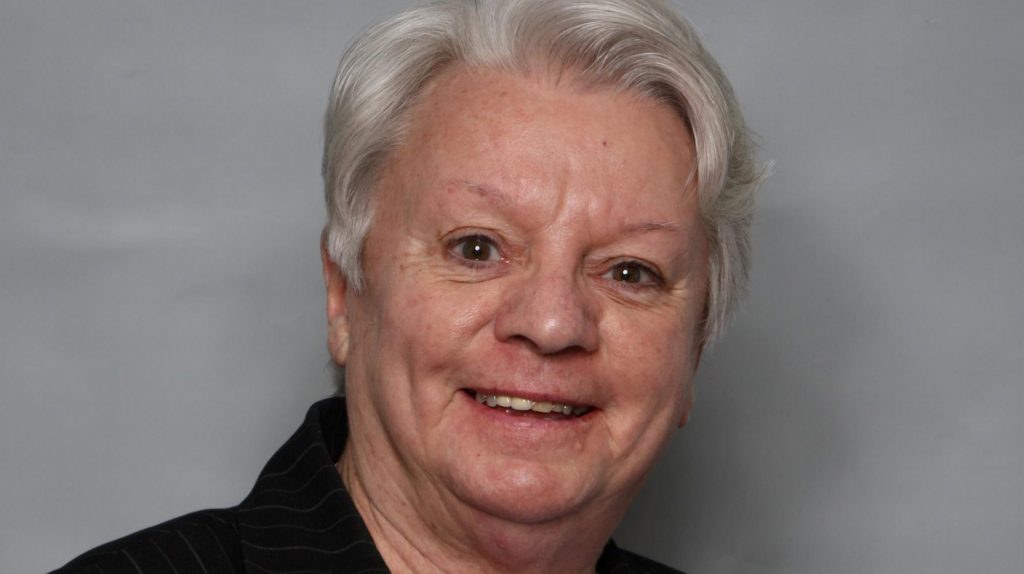While many safeguarding advocates are concerned the COVID-19 pandemic has diverted attention away from the church abuse scandal, Sister of Charity Nuala Kenny said she believed the health crisis has increased the possibility of people finally understanding "the nature of vulnerability" so they "can commit anew to this task of safeguarding."
"We have, I believe, an unprecedented experience of vulnerability for many of us in the West. We have an experience of powerlessness and dependence on others to care and protect," said Sister Kenny, who is a medical doctor, ethicist and expert involved in safeguarding efforts.
For many people, "if anything, this pandemic gives us a shared sense of vulnerability and I believe there is possibility for a new commitment to protect the vulnerable," she said.
Sister Kenny was the first speaker in a "Safeguarding Webinar Series" organized by the International Union of Superiors General with the collaboration of the Pontifical Commission for the Protection of Minors, the Center for Child Protection of Rome's Pontifical Gregorian University and the "Telefono Azzurro" abuse hotline in Italy.
The series was to feature four online conference talks from June 8 to July 6. More than 700 people registered for the June 8 talk with Sister Kenny and many more listened in as it was livestreamed on the UISG's Facebook page.
Sister Kenny's talk focused on the need for building a consistent "theology of childhood" that explains the importance of safeguarding children and how children are to be regarded, loved and cared for -- as Jesus showed -- by all members of the church.
There is no way to properly protect children and respond to their harm unless people are rooted in Jesus and his loving care of children, she said.
Jesus had a radically "countercultural message" that put children front and center, she said, and he fiercely rebuked his disciples, who behaved -- as was the custom -- as if children didn't matter.
Jesus, on the other hand, wants children, not the powerful and privileged, in their midst, and it is to children that the kingdom of God belongs, she said.
An otherwise always "gentle" Jesus also clearly shows "anger and righteous indignation" when children are harmed, saying it would be better for those causing harm to be drowned in the sea with a millstone around their neck, she said.
This, she said, is a "serious obligation from Jesus himself."
Just as the Gospel makes clear Christ's unequivocal mandate to care for and protect the smallest, science has also furthered understanding about how unique and unrepeatable each stage of child development is and how children learn from and bond with others, Sister Kenny said.
"Children learn from interaction, from our smiles, from the way our eyes affect them, from our touch," which is something adults should rediscover from children, she said.
However, she said, the flip side of that gift is that because "the task of childhood" is to learn vulnerability through dependence on others, "harm during childhood has lifelong consequences."
"Vulnerability is essential to understanding Jesus; in fact, he took on our vulnerability, he emptied himself for love of us," she said, "and we now have to learn what that means and trust in his love."
Jesus also knows "what abuse of power and trust is" and ultimately faced his own doubts and fears with trust in God, she added.
"But we, in fact, have to reclaim that our God is ever faithful and with us in our joys and sadness."
Sister Kenny said the church needs to develop an "ecclesiology of vulnerability" that continues the healing and reconciling mission of Jesus.
"Roles and responsibilities are for mission. They're not for power and status, and that all, even the smallest and lowest among us, have gifts needed for missions and ministry," she said.
Sister Kenny concluded by saying that because of the pandemic, because reform measures have slowed and because past challenges are now even more urgent, "we will never go back to being the same, for many, many issues, thank God."
"The challenge is, will we go forward more just, more loving, more caring, more committed to protection?"
She asked whether people will use this opportunity to live out the Gospel message, "that if anyone is in Christ, there is a new creation. Everything old has passed away, and everything has become new -- new in Christ."

